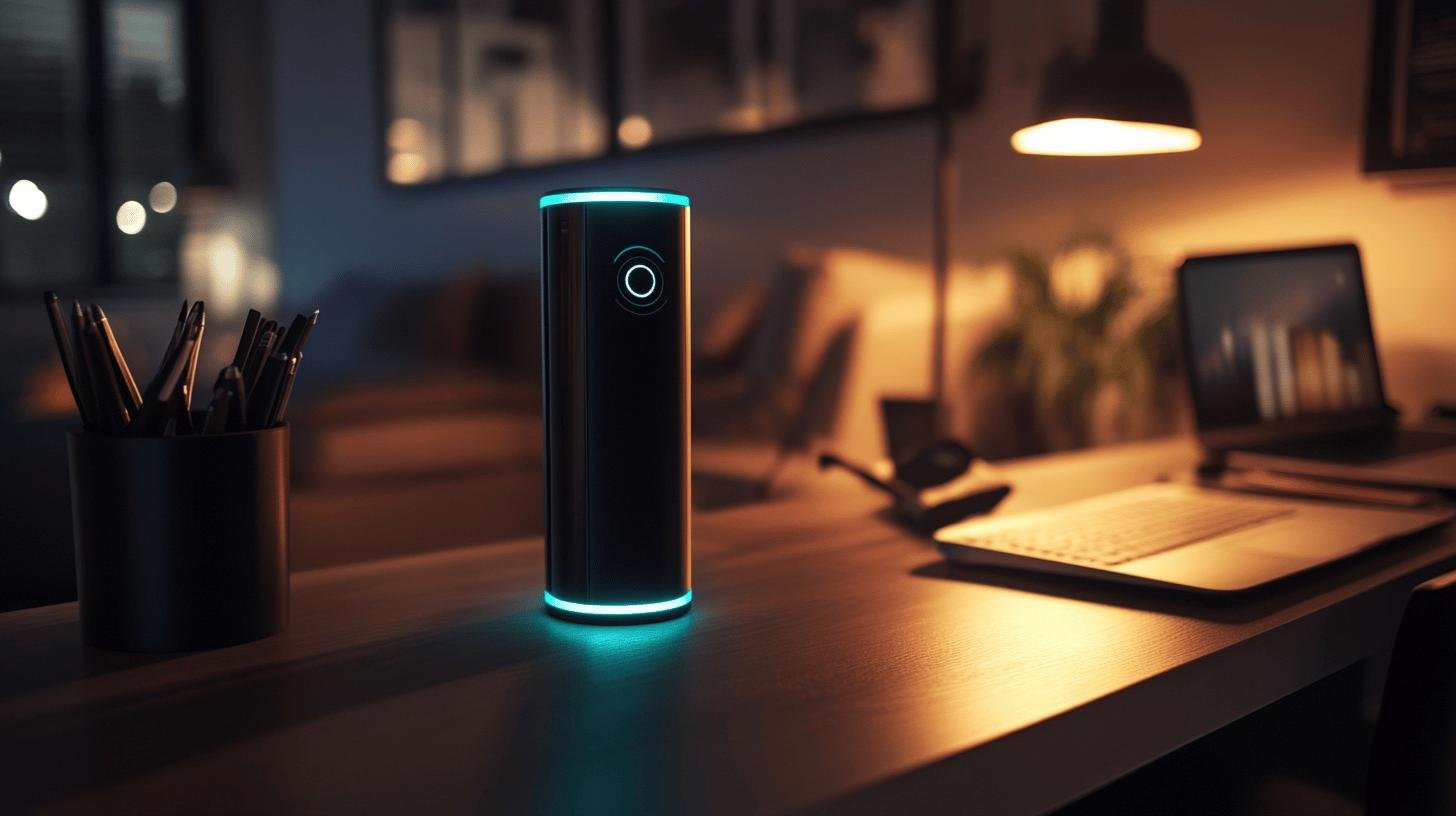Is it too much to ask for an AI assistant that can do it all? Maybe. But we’ve got some real heavy hitters in the AI game—Google Assistant, Amazon Alexa, and Siri. All promise to boost our productivity and make life easier. But which is the smartest? In this quick guide, we’re breaking down their strengths and weaknesses. Think of it like a battle royale for your virtual sidekick. Let’s find out which AI assistant is the smartest.
Comparing the Smartest AI Assistants: Who Comes Out on Top?
Choosing the right AI assistant can significantly enhance business productivity. Imagine a virtual helper managing schedules, emails, and smart office devices. Selecting the best AI assistant is crucial for streamlining your workflow. For both small business owners and large teams, the right assistant saves time and boosts organization.
So, let’s discuss the big names: Google Assistant, Amazon Alexa, and Apple’s Siri. Google Assistant is often considered top-notch. It’s excellent at managing tasks and works well with smart home gadgets. Alexa is your budget-friendly choice with extensive device compatibility. Meanwhile, Siri excels in privacy, guarding your info within Apple’s ecosystem. So, who wins? Generally, Google Assistant tops the list for its advanced features and smooth integration with Google services.
Employing these AI assistants can revitalize your business operations. They automate tasks, assist with scheduling, and even manage customer interactions. This leads to fewer headaches and more focus on growing your business. Whether it’s communication or task handling, integrating these smart assistants is a clear choice for enhancing productivity.
Evaluating AI Assistant Capabilities and Features

AI assistants like Google Assistant, Siri, and Alexa can transform business operations. These digital helpers function like tireless personal assistants. Their features include voice activation, allowing you to say, “Hey Google!” to get things done without lifting a finger.
They automate tasks, such as setting reminders and sending emails. Smart home control lets you adjust office lights or temperature using your voice, which is quite convenient.
- Voice activation: Enables hands-free multitasking.
- Task automation: Simplifies repetitive tasks to save time.
- Device integration: Ensures seamless connection with other smart devices.
- Routine management: Automates daily schedules for efficiency.
- Privacy controls: Secures and protects your data.
These features enhance business operations by automating routines, like scheduling meetings and managing emails. Device integration aligns your gadgets for smooth operations. Privacy controls keep business data safe, ensuring trust. Whether optimizing workflows or improving communication, these AI assistant features boost productivity.
AI Assistant Performance: User Experience and Feedback
To determine the smartest AI assistant, user feedback is key. Users provide valuable insights into their digital companions’ performance. Google Assistant earns praise for its accuracy and smooth Android integration. It’s like having a reliable sidekick anticipating your needs.
Alexa stands out as a multitasking champion, loved for connecting with numerous devices. Siri is appreciated for privacy but falls short in handling complex tasks. So, which AI assistant is the smartest, judging by their uniqueness.
- Google Assistant: Praised for accuracy and seamless Android integration.
- Alexa: Loved for multitasking and device compatibility.
- Siri: Appreciated for privacy but needs improvement in complex tasks.
- All assistants: Users desire better voice recognition in noisy environments.
User feedback guides you to the AI assistant that suits your needs. For multitasking and a connected office, Alexa is a strong option. If privacy is paramount, consider Siri. For accuracy, Google Assistant may be the best choice. These insights ensure smooth and efficient business operations.
Advanced AI Technologies: The Evolution of Smart Assistants

Are AI assistants getting smarter? Absolutely! Thanks to advancements in technology, these digital helpers are becoming more intelligent. AI assistants like Google Assistant and Alexa are improving through machine learning and natural language processing. This helps them understand and respond more like humans.
- Generative AI: Enables AI to create content, such as text and images.
- Enhanced language processing: Improves understanding and response accuracy.
- Voice recognition improvements: Ensures more reliable voice commands.
- Contextual awareness: Helps AI understand situations better.
- Emotion detection: Enables AI to respond naturally to your mood.
These advancements significantly impact businesses. Smarter AI allows for more automation and better customer service by understanding customer needs. This means less time on routine tasks and more focus on innovation. Generative AI aids in content creation, smoothing tasks from marketing to operations. These tech upgrades are essential tools that enhance productivity and creativity.
Integration of AI Assistants in Business Environments
AI assistants are the heroes that were never celebrated in business environments, like an extra pair of hands that never tire. Their biggest advantage? Boosting efficiency. By automating routine tasks, AI assistants free up time for strategic planning and creative projects.
They support decision-making with real-time data and insights. Tools like ClickUp centralize workflows, and Otter.ai handles meeting notes, ensuring smooth operations and allowing you to focus on essential matters. Let’s see which AI assistant is the smartest, compared to their efficiency.
- Scheduling meetings: AI assistants coordinate times and send invites without hassle.
- Managing emails: They prioritize and draft responses.
- Automating tasks: From setting reminders to generating reports.
- Facilitating communication: Provide instant translations and manage chats.
- Tracking productivity: Offer insights into time management and task completion.
- Controlling smart office devices: Adjust lighting and temperature with ease.
Despite the benefits, integrating AI in business has challenges. Concerns about data security and technological learning curves are common. The solution lies in selecting an AI assistant aligning with business needs and offering strong security features. Training your team effectively can make a significant difference. With patience and the right strategy, AI can transform business operations, enhancing efficiency and innovation.
Conclusion
Choosing which AI assistant is the smartest comes down to what you need most.
Google Assistant shines with its advanced features and smooth integration, ideal for task management. Alexa stands out for its device compatibility and is easy on the pocket. Siri holds its ground with top-notch privacy for Apple users.
All these clever assistants have their perks. It’s about matching those strengths to your biz needs.
So, which AI assistant fits your style? Decisions, decisions!
FAQ
Which AI assistant is the smartest Reddit?
Google Assistant is often considered the smartest AI, praised for its question-answering skills and natural language understanding.
Which AI assistant is the smartest in the world?
Google Assistant is frequently recognized as the smartest due to its advanced task management and integration with the Google ecosystem.
Virtual assistant AI examples
Examples include Google Assistant, Amazon Alexa, Apple’s Siri, and Microsoft’s Cortana.
Best AI personal assistant
Google Assistant usually ranks as the best for its efficiency and capabilities, making it a popular choice.
AI assistant free
Google Assistant and Amazon Alexa can be used for free, offering essential features without cost.




